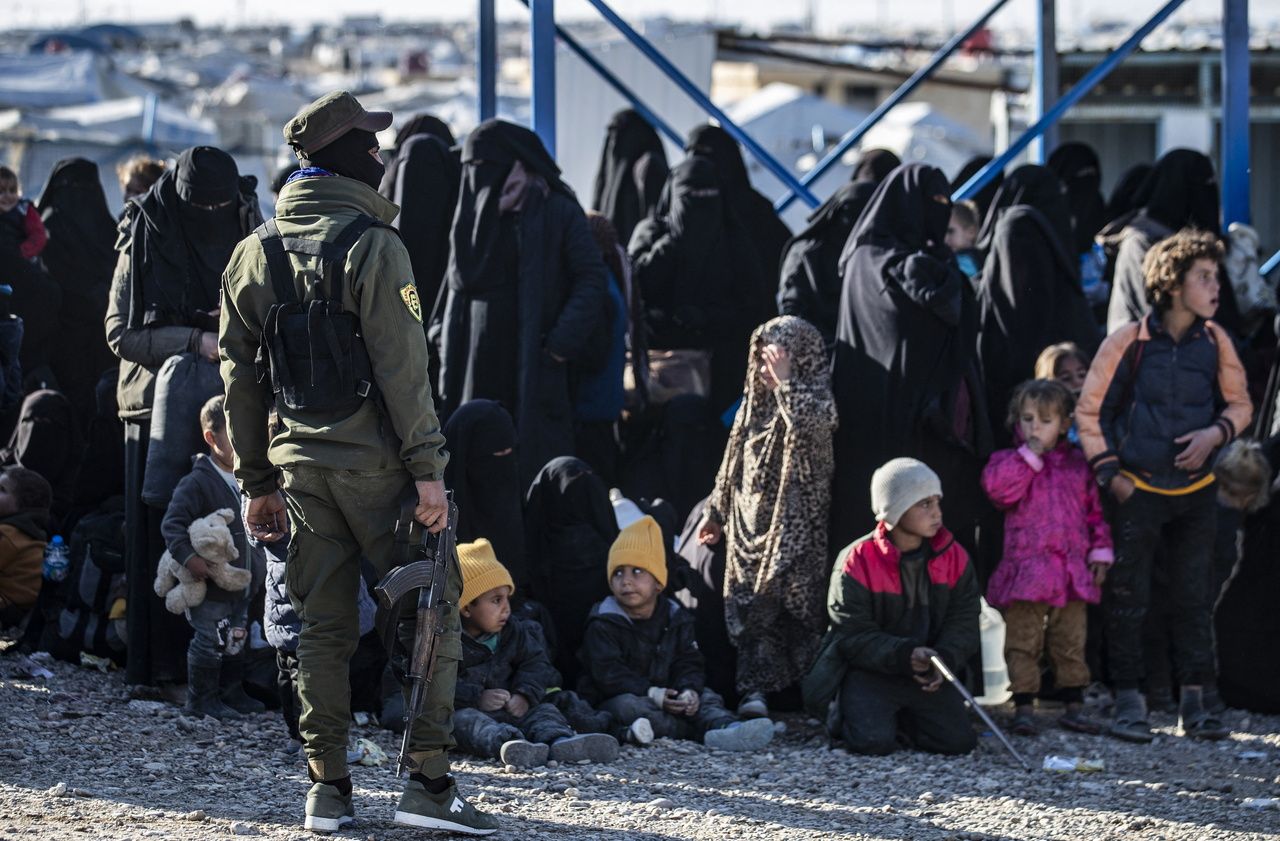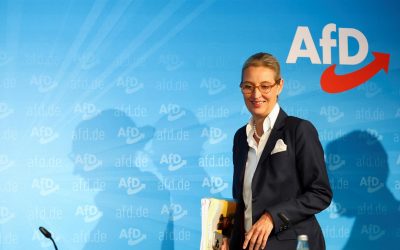Tracking down the orphaned children of an ISIS fighter killed in battle
English.alarabiya – Two orphaned children of a Palestinian ISIS fighter were tracked down by an Al Arabiya reporter intending to reunite them with their grandparents in Europe. Al Arabiya’s Rola al-Khatib received a call from the children’s grandfather asking for her assistance in bringing them to safety in Germany.
Al-Khatib traveled to the notorious al-Hol refugee camp for families of ISIS fighters in Syria, where residents told her about the horrors of the random violence that sees people killed with silenced pistols for the smallest of perceived infractions.
She found the infant boy and girl, who were living in a tent with their aunt before the authorities moved them into a care center for orphaned children, where they were being educated and looked after. The latest episodes of al-Arabiya’s Face to Face series follow al-Khatib in her journey to track down the two orphans in hopes of returning them to their family in Germany.
Official clearance
After receiving the tipoff, al-Khatib contacted the authorities managing the al-Hol camp to see if it was possible to attain clearance from the officials and remove the children from the camp legally. In a telephone call with Kamal Akef, an official in the Autonomous Administration of North and East Syria, she discovered that the officials were “willing to cooperate” with humanitarian causes.
“These children must live in a decent environment, get reintegrated into their original communities, and be purged of the ISIS mentality upon which 8,000 children were raised, mostly below the age of ten,” Akef said. “In principle, we’re willing to cooperate in such humanitarian cases and hand them over to the official authorities of the concerned states.”
To hand over the children, Akef needed a DNA test proving that the man in Germany was in fact related to the orphans. He also required a member of the Palestinian Authority to be present, and for documents to be signed guaranteeing the children’s safety.Akef also warned against unofficial channels of smuggling children out of the camp.
“Those children shouldn’t be exposed to kidnapping, smuggling or extortion in any shape or form because several entities use extortion against the families of those children for child-trafficking,” he said.
Revealing the backstory
Once it was confirmed that the children were still living in the camp, al-Khatib traveled to the city of Saarbrücken in Germany to meet the grandparents and see for herself where the children would eventually live after leaving Syria. She met Palestinians Ghassan and Kawthar at their home, who told her the story of how their son became radicalized and ended up being killed in battle while fighting for ISIS.
Their son Ahmad was born in 1993 and raised in the al-Nayrab refugee camp in Aleppo, Syria. When the civil war broke out in 2011, Ghassan says the older residents of the camp tried to keep their children away from the conflict.“It was a Syrian issue and we had nothing to do with it,” he told Al Arabiya.
But Ahmad had a falling out with another young man who was a supporter of Assad’s regime, who Ghassan said began threatening his son with violence.Ahmad left the camp and joined the al-Tawhid Brigade. He fought for the insurgent group in Turkey, where he was injured in combat.In 2015, he met a woman named Jamila – whose brothers were ISIS members – and the two ended up marrying and having children. Jamila was six weeks pregnant when Ahmad was killed in November 2017.
Ahmad’s parents portrayed their son not as a religious fanatic, but as someone who was lured into extremism by promises of material gain.Ghassan said that Ahmad “hardly prayed,” and Kawthar added that the family “lived in very tough conditions,” and that extremist groups “lured him in with money.”
After Ahmad was killed, his wife Jamila contacted his parents and asked them to take the children back to Germany with the help of a smuggler. But Kawthar found out the man she had in mind was only 23 years old, and concerns over the children’s safety took over.“I thought he was too young to be trusted with two children,” she said. “What if something happened to him along the way?”
“They kill everyone, the guilty and the innocent”
In al-Hol camp in Syria, al-Khatib tracked down Jamila’s sister Fatima, who was looking after the two children before they were taken into care.Fatima described how, after Ahmad’s death, Jamila was determined to join him in supposed martyrdom.“I told her she could die if she wanted to, but I wouldn’t let the kids die,” Fatima said.Jamila had remarried an Iraqi man, and was killed when she was five months pregnant, her sister told Al Arabiya.
The young woman described the violent atrocities that had become commonplace in the camp.She said that her own husband had been killed by gunmen who believed that he was an informant for the authorities because he drove a water tanker to sell drinking water to al-Hol’s residents.“They killed many people, in the hundreds. It keeps us up at night. We’re waiting our turn to be killed like our relatives. They kill everyone, the guilty and the innocent,” Jamila said.
Asked about how the outside world perceived residents of al-Hol, Jamila denied that she deserved to be feared. When al-Khatib pointed out that “people outside are scared of you, because you are the fierce women of ISIS,” she replied: “Not all of us… Some of us just want to feed our kids. My only wish now is to get out of the camp with my kids.”
A better life
When al-Khotib finally tracked down the infants, she found that they had been removed from the camp proper and were being educated in a specialized care center for al-Hol’s orphans.“They get an education there and it appears that they’re being raised well,” she said.
Now, the children are awaiting the end of the COVID-19 lockdown so that their grandfather can leave Germany and travel to al-Hol to take them out of the dire circumstances surrounding them and bring to Europe to start their new lives.The full interviews are a part of Al Arabiya’s Face to Face series, episodes eight to ten.




